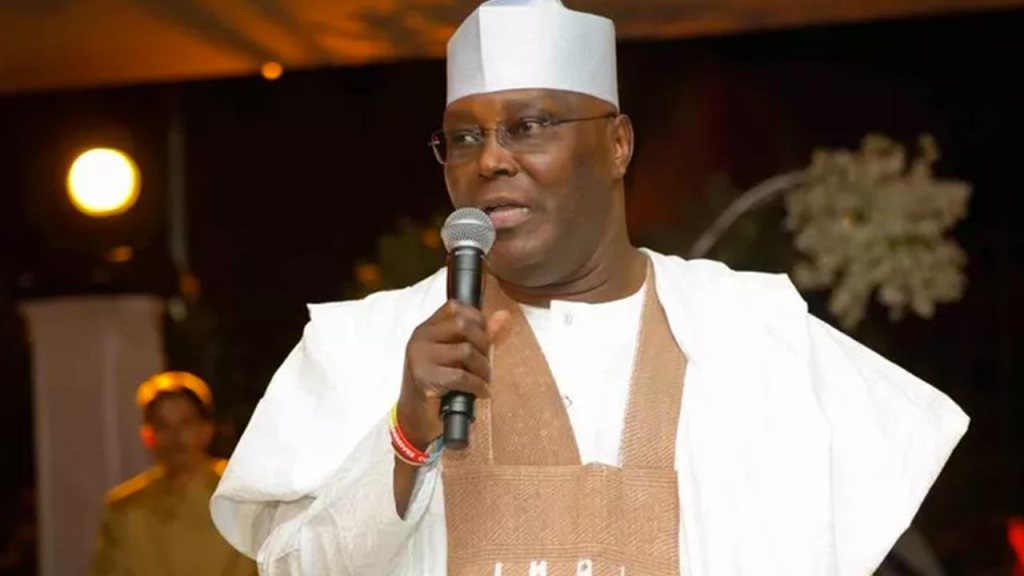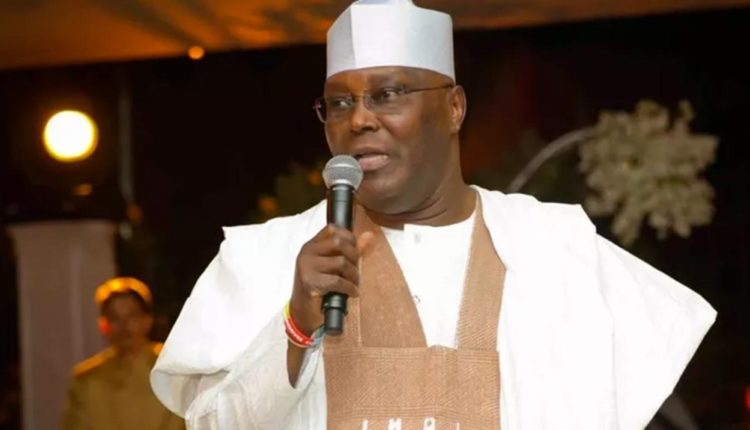
The Importance of Strengthening State Economic Management Systems
Being an Address Delivered by His Excellency, Atiku Abubakar, Vice President of Nigeria 1999-2007 at the Royal Institute of International Affairs (Chatham House) on Wednesday April 25, 2018.
I thank the Royal Institute of International Affairs for giving me this platform to speak to such a distinguished audience. I specifically want to thank Dr. Alex Vines for inviting me to give this address.
I particularly want to thank Nigerian nationals who are present here today. Your love for Nigeria is evident in that you have left your regular pursuits to be here to interact with lovers of Nigeria on issues that, if implemented, will lead to the progress of Nigeria. Your presence inspires me.
To friends of Nigeria here present, I appreciate your friendship and it is my strong desire that our collective wish to see Nigeria fulfill her potentials are realized in the not so distant future.
I am a widely traveled man, and everywhere I visit around the world, there is agreement that Nigeria has the potential to make that leap from third world to first that Singapore, under Lee Kuan Yew, made. We have the human and material resources required to make the leap and in fact, many of our nationals have helped other nations make that transition.
And it is not that we have not made progress, after all, within a decade we were able to move from being the third largest economy in Africa to being the largest bar none.
Yet, there is still that consensus that we are not meeting up with our potential and all things considered, that verdict is true.
The question becomes why is Nigeria not living up to the promise of her potentials?
More specifically, why are we saddled with a heavy and almost unsustainable debt burden twelve years after President Olusegun Obasanjo and I provided the leadership that paid off Nigeria’s entire foreign debt of $32 billion in one fell swoop?
After paying off a monumental debt accumulated by previous governments, then President Olusegun Obasanjo on April 22, 2006 said “Nigeria will not owe anybody one kobo”. Today, almost exactly 12 years to the day, you can almost say ‘Nigeria is now owing everybody more than one kobo’.
What happened in the intervening years to turn the dream that our administration had, into this present reality where Nigeria now owes double what we paid off in 2006?
In talking about the Importance of Strengthening State Economic Management Systems, we must identify the structural defects in Nigeria’s federal structure that prevents all levels of the Nigerian government, federal, states and local governments, from operating at optimal levels.
After nineteen years of uninterrupted democracy in the fourth republic, it is now an indisputable fact that today’s Nigerian states essentially have been reduced to parastatals of the Federal Government and are addicted to the monthly allocation they receive from Abuja.
There is nothing as addictive as states that are dependent on their monthly share of revenue from crude oil sales and the only way to get them to manage their economies in an economically viable way is to cure them off that addiction. Nigeria needs to be restructured. We must commit to a new development agenda with focus on wealth creation by the federating units, rather than wealth distribution from Abuja to state and local government capitals. We must undertake far reaching economic reforms to attract private resources, including financial resources and build bigger, stronger and more dynamic sub-national economies. We must expand the frontier of private sector activity beyond the realm of the oil sector and build a new Nigeria without oil.
If oil could save a nation then surely it would have saved Venezuela, the nation with the largest proven reserves of oil in the world. But you and I know what is up with Venezuela and if oil has not saved her, it will not save Nigeria.
If we want to help states strengthen their economies, we must come up with creative ways to encourage them to look inwards rather than outwards.
Before we outline the steps we will take to support the states, we remind ourselves how we got to where we are.
1. We have promoted, tolerated and indeed celebrated a defective political structure. The federalism we practice is not smart. We politicized the creation of states and local governments over the years. States and local governments became too weak to meet their constitutional responsibilities and consequently the Federal Government emasculated them and took away those responsibilities which belong to them. Many of the states are small, subsistence economies with very limited capacity to sustain growth and lift their citizens out of poverty. It is therefore very attractive for these states and local governments to become addicted to revenues from federation accounts and to care less about their internal revenue opportunities. As a result, combined Internally Generated Revenue from all the 36 states came up to less than 1% of Nigeria’s nominal GDP and less than 12% of their 2016 budgets! Internally generated revenue is far less than what the states require to run their administrations – and many state and local governments survive by consuming more resources than they can generate internally – thanks to the generous ‘handouts’ from the federation accounts.
2. We allowed crude oil to ‘crowd out’ the non-oil sectors which were Nigeria’s lifeline in the 1960s and 1970s and celebrated the windfall from oil exports – which resulted in a steep rise in the volume of funds allocated to all tiers of government in the federation. We preferred to survive on rent than on hard, productive efforts. We were too drunk to remember to build a revenue buffer – for the proverbial ‘rainy day’. There has been no effective revenue stabilization programme and effective strategic planning to cushion the effect of falls in the price of crude oil.
3. We lived on another structural fault line for too long and pretended all was well. The Nigerian economy remains fragile and vulnerable to the vagaries of the global oil market, making the fiscal position of the national and sub-national economies become precarious. However, this faulty economic structure has always been shielded by increased revenues from crude oil sales. Its deficiency is only exposed when global oil prices collapse with impact on investments, consumption and growth.
Now the big question: what can we do to help the federating units strengthen their economies?
1. There is no alternative to a policy which promotes the growth and diversification of the sub national economies. How much revenue they generate locally from taxes and fees depends on the size and structure of their economies. The bigger and more diversified the better. The federal government will create a business-friendly macro-economic environment, through the pursuit of appropriate monetary and exchange rate policies, to leverage private sector investments especially in agriculture to promote economic diversification. Indeed, achieving diversification is central to our economic development strategy. Let us begin to visualize Nigeria without oil or one not predominantly dependent on hydro-carbon.
2. Our economic policies will be coherent, consistent and therefore more predictable by the business community. Nothing could be more threatening to investment flows than an environment that is full of policy flip-flops.
3. We will ensure spatially balanced investments, through a carefully designed incentive regime, in order to provide more opportunities in the poorer and less endowed federating units.

